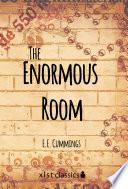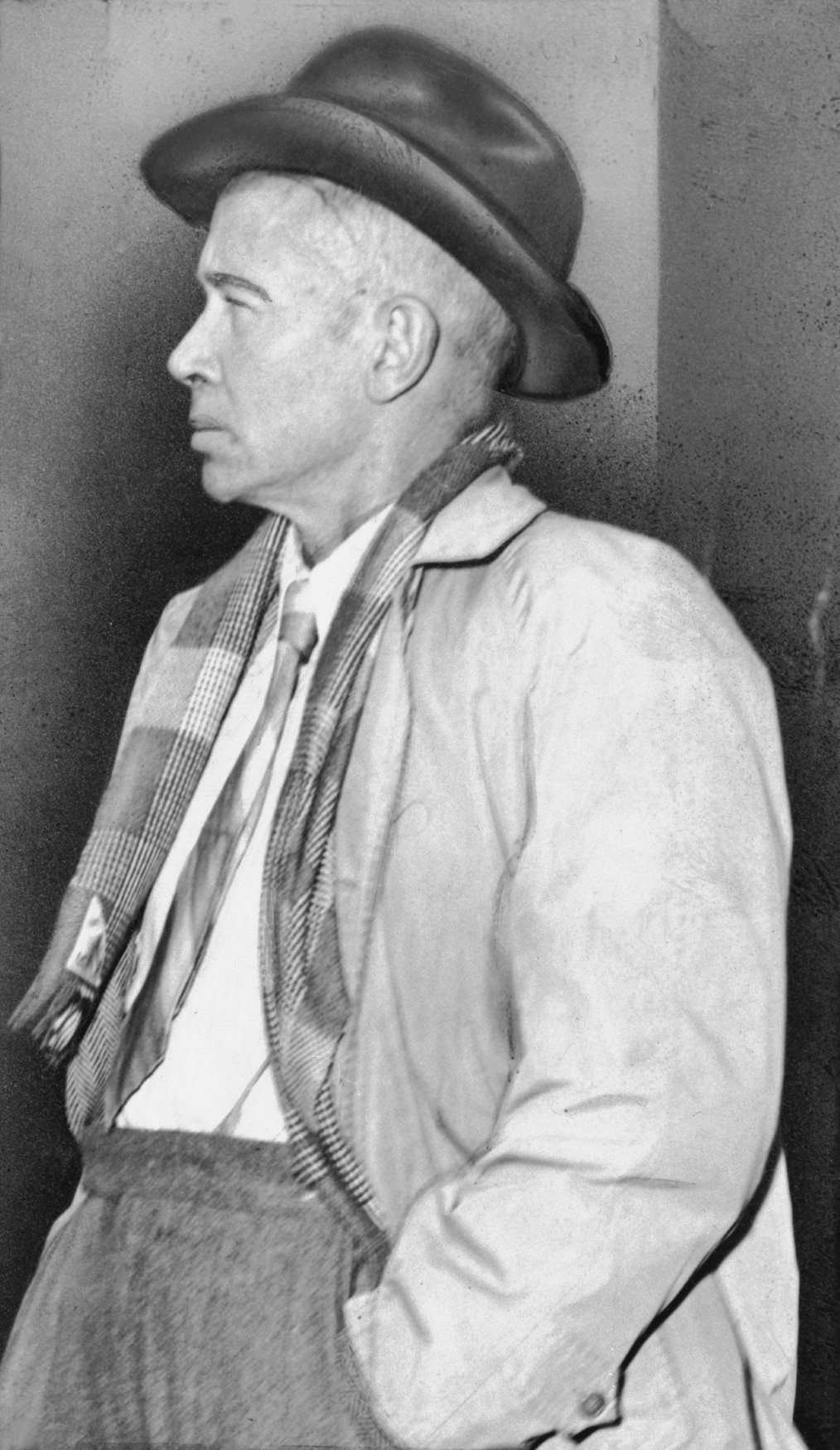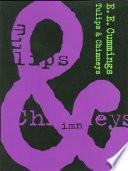Works
EIMI
E.E. Cummings
The Enormous Room
E.E. CummingsFamous E.E. Cummings Quotes
E.E. Cummings Quotes about love
“Trust your heart if the seas catch fire, live by love though the stars walk backward.”
Variant: Trust your heart if the seas catch fire, live by love though the stars walk backwards.
A Foreword to Krazy (1946)
Context: A humbly poetic, gently clownlike, supremely innocent, and illimitably affectionate creature (slightly resembling a child's drawing of a cat, but gifted with the secret grace and obvious clumsiness of a penguin on terra firma) who is never so happy as when egoist-mouse, thwarting altruist-dog, hits her in the head with a brick. Dog hates mouse and worships "cat", mouse despises "cat" and hates dog, "cat" hates no one and loves mouse.
E.E. Cummings Quotes about the world
Variant: For whatever we lose (like a you or a me),
It's always our self we find in the sea.
Source: 100 Selected Poems
A Poet's Advice (1958)
Context: Almost anybody can learn to think or believe or know, but not a single human being can be taught to feel …
the moment you feel, you're nobody-but-yourself.
To be nobody-but-yourself — in a world which is doing its best, night and day, to make you everybody else — means to fight the hardest battle which any human being can fight; and never stop fighting.
“As small as a world as large as alone.”
"maggie and milly and molly and may" in Complete Poems: 1904-1962
Variant: may came home with a smooth round stone
as small as a world and as large as alone.
Context: milly befriended a stranded star
whose rays five languid fingers were;and molly was chased by a horrible thing
which raced sideways while blowing bubbles:and may came home with a smooth round stone
as small as a world and as large as alone for whatever we lose (like a you or a me)
it's always ourselves we find in the sea
W [ViVa] (1931) LVII
E.E. Cummings: Trending quotes
“it's you are whatever a moon has always meant
and whatever a sun will always sing is you”
92
95 poems (1958)
Variant: it's you are whatever a moon has always meant
and whatever a sun will always sing is you
E.E. Cummings Quotes
“I would rather learn from one bird how to sing than to teach 10,000 stars how not to dance.”
Collected Poems (1938) New Poems 22
Variant: I'd rather learn from one bird how to sing
than teach ten thousand stars how not to dance.
Variant: I will take the sun in my mouth and leap into the ripe air.
Source: Poems, 1923-1954
65 - This poem was used by Eric Whitacre for an a capella SATB chorus titled "i thank you God".
XAIPE (1950)
“life's not a paragraph
And death i think is no parenthesis”
Four VII
is 5 (1926)
“Tall as the truth was who; and
wore his
… life
like a …
sky.”
14
73 poems (1963)
Context: p>a great
man
is
gone.Tall as the truth was who; and
wore his
… life
like a …
sky.</p
“In other words, you don’t want to be serious—
It takes two to be serious.”
"Forward to an Exhibit: II" (1945)
Context: Your poems are rather hard to understand, whereas your paintings are so easy.
Easy?
Of course—you paint flowers and girls and sunsets; things that everybody understands.
I never met him.
Who?
Everybody.
Did you ever hear of nonrepresentational painting?
I am.
Pardon me?
I am a painter, and painting is nonrepresentational.
Not all painting.
No: housepainting is representational.
And what does a housepainter represent?
Ten dollars an hour.
In other words, you don’t want to be serious—
It takes two to be serious.
A Poet's Advice (1958)
Context: Almost anybody can learn to think or believe or know, but not a single human being can be taught to feel …
the moment you feel, you're nobody-but-yourself.
To be nobody-but-yourself — in a world which is doing its best, night and day, to make you everybody else — means to fight the hardest battle which any human being can fight; and never stop fighting.
A Foreword to Krazy (1946)
Context: This hero and villain no more understand Krazy Kat than the mythical denizens of a two dimensional realm understand some three dimensional intruder. The world of Offissa Pupp and Ignatz Mouse is a knowledgeable power-world, in terms of which our unknowledgeable heroine is powerlessness personified. The sensical law of this world is might makes right; the nonsensical law of our heroine is love conquers all. To put the oak in the acorn: Ignatz Mouse and Offissa Pupp (each completely convinced that his own particular brand of might makes right) are simple-minded—Krazy isn't—therefore, to Offissa Pupp and Ignatz Mouse, Krazy is. But if both our hero and our villain don't and can't understand our heroine, each of them can and each of them does misunderstand her differently. To our softhearted altruist, she is the adorably helpless incarnation of saintliness. To our hardhearted egoist, she is the puzzlingly indestructible embodiment of idiocy. The benevolent overdog sees her as an inspired weakling. The malevolent undermouse views her as a born target. Meanwhile Krazy Kat, through this double misunderstanding, fulfills her joyous destiny.
“Here life is, moves; faintly. A wrist. The faint throb of blood, precise, miraculous . . .”
Him (1927)
Context: Here life is, moves; faintly. A wrist. The faint throb of blood, precise, miraculous... And they talk of dying! The blood delicately descending and ascending: making an arm. Being an arm. The warm flesh, the dim slender flesh filled with life, slenderer than a miracle, frailer... These are the shoulders through which fell the world. The dangerous shoulders of Eve, in god's entire garden newly strolling.
"Foreword to an Exhibit: I" (1944)
Re Ezra Pound (p. 69)
i : six nonlectures (1953)
Context: An artist doesn't live in some geographical abstraction, superimposed on a part of this beautiful earth by the nonimagination of unanimals and dedicated to the proposition that massacre is a social virtue because murder is an individual vice. Nor does an artist live in some soi-disant world, nor does he live in some so-called universe, nor does he live in any number of "worlds" or in any number of "universes." As for a few trifling delusions like the "past" and "present" and "future" of quote mankind unquote, they may be big enough for a couple of billion supermechanized submorons but they're much too small for one human being.
A Foreword to Krazy (1946)
Context: This hero and villain no more understand Krazy Kat than the mythical denizens of a two dimensional realm understand some three dimensional intruder. The world of Offissa Pupp and Ignatz Mouse is a knowledgeable power-world, in terms of which our unknowledgeable heroine is powerlessness personified. The sensical law of this world is might makes right; the nonsensical law of our heroine is love conquers all. To put the oak in the acorn: Ignatz Mouse and Offissa Pupp (each completely convinced that his own particular brand of might makes right) are simple-minded—Krazy isn't—therefore, to Offissa Pupp and Ignatz Mouse, Krazy is. But if both our hero and our villain don't and can't understand our heroine, each of them can and each of them does misunderstand her differently. To our softhearted altruist, she is the adorably helpless incarnation of saintliness. To our hardhearted egoist, she is the puzzlingly indestructible embodiment of idiocy. The benevolent overdog sees her as an inspired weakling. The malevolent undermouse views her as a born target. Meanwhile Krazy Kat, through this double misunderstanding, fulfills her joyous destiny.
"Foreword to an Exhibit: I" (1944)
Context: Art is a mystery.
A mystery is something immeasurable.
In so far as every child and woman and man may be immeasurable, art is the mystery of every man and woman and child. In so far as a human being is an artist, skies and mountains and oceans and thunderbolts and butterflies are immeasurable; and art is every mystery of nature. Nothing measurable can be alive; nothing which is not alive can be art; nothing which cannot be art is true: and everything untrue doesn’t matter a very good God damn...
“It's the most wonderful life on earth.
Or so I feel.”
A Poet's Advice (1958)
Context: my advice to all young people who wish to become poets is: do something easy, like learning how to blow up the world — unless you're not only willing, but glad, to feel and work and fight till you die.
Does this sound dismal? It isn't.
It's the most wonderful life on earth.
Or so I feel.
Re Ezra Pound (p. 69)
i : six nonlectures (1953)
Foreword
is 5 (1926)
Context: There are certain things in which one is unable to believe for the simple reason that he never ceases to feel them. Things of this sort— things which are always inside of us and in fact are us and which consequently will not be pushed off or away where we can begin thinking about them— are no longer things; they, and the us which they are, equals A Verb; an IS.
“Simple people, people who don't exist, prefer things which don't exist,simple things.”
"Foreword to an Exhibit: I" (1944)
Context: Simple people, people who don't exist, prefer things which don't exist, simple things.
"Good" and "bad" are simple things. You bomb me = "bad." I bomb you = "good." Simple people(who, incidentally, run this socalled world)know this(they know everything)whereas complex people—people who feel something—are very, very ignorant and really don't know anything.
“Every artist's strictly illimitable country is himself.”
Re Ezra Pound (p. 69)
i : six nonlectures (1953)
Context: Every artist's strictly illimitable country is himself.
An artist who plays that country false has committed suicide; and even a good lawyer cannot kill the dead. But a human being who's true to himself — whoever himself may be — is immortal; and all the atomic bombs of all the antiartists in spacetime will never civilize immortality.
Him (1927)
Context: A distinct throat. Which breathes. A head: small, smaller than a flower. With eyes and with lips. Lips more slender than light; a smile how carefully and slowly made, a smile made entirely of dream. Eyes deeper than Spring. Eyes darker than Spring, more new... These, these are the further miracles... the breasts. Thighs. The All which is beyond comprehension — the All which is perpetually discovered, yet undiscovered: sexual, sweet, Alive!
A Foreword to Krazy (1946)
Context: This hero and villain no more understand Krazy Kat than the mythical denizens of a two dimensional realm understand some three dimensional intruder. The world of Offissa Pupp and Ignatz Mouse is a knowledgeable power-world, in terms of which our unknowledgeable heroine is powerlessness personified. The sensical law of this world is might makes right; the nonsensical law of our heroine is love conquers all. To put the oak in the acorn: Ignatz Mouse and Offissa Pupp (each completely convinced that his own particular brand of might makes right) are simple-minded—Krazy isn't—therefore, to Offissa Pupp and Ignatz Mouse, Krazy is. But if both our hero and our villain don't and can't understand our heroine, each of them can and each of them does misunderstand her differently. To our softhearted altruist, she is the adorably helpless incarnation of saintliness. To our hardhearted egoist, she is the puzzlingly indestructible embodiment of idiocy. The benevolent overdog sees her as an inspired weakling. The malevolent undermouse views her as a born target. Meanwhile Krazy Kat, through this double misunderstanding, fulfills her joyous destiny.
“since the thing perhaps is
to eat flowers and not to be afraid”
Source: Complete Poems, 1904-1962
“Love is the whole and more than all.”
Source: 100 Selected Poems

